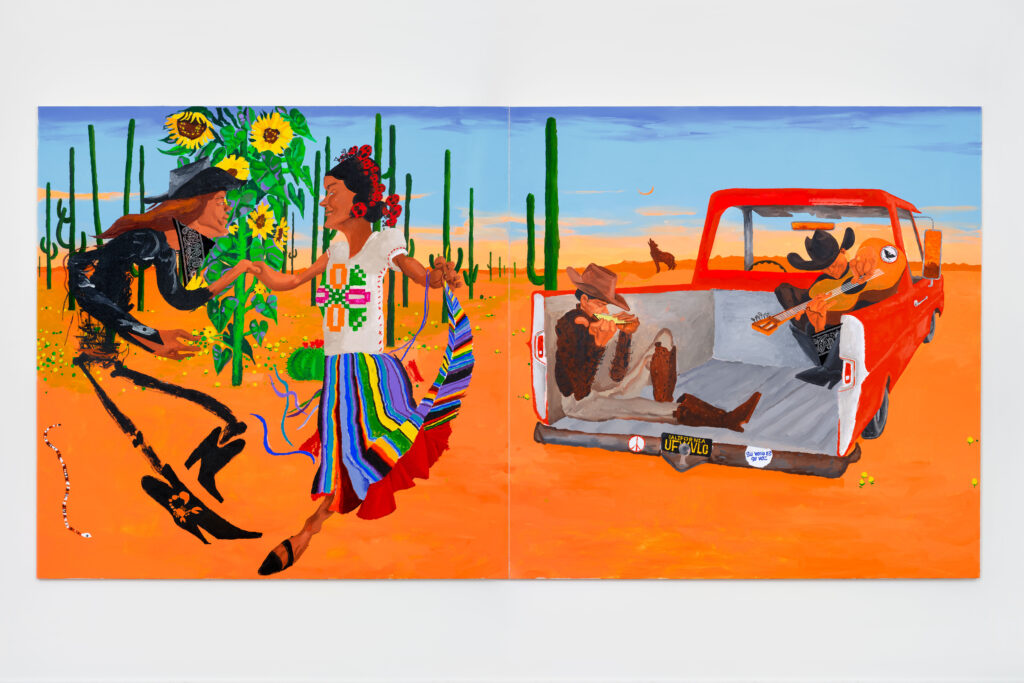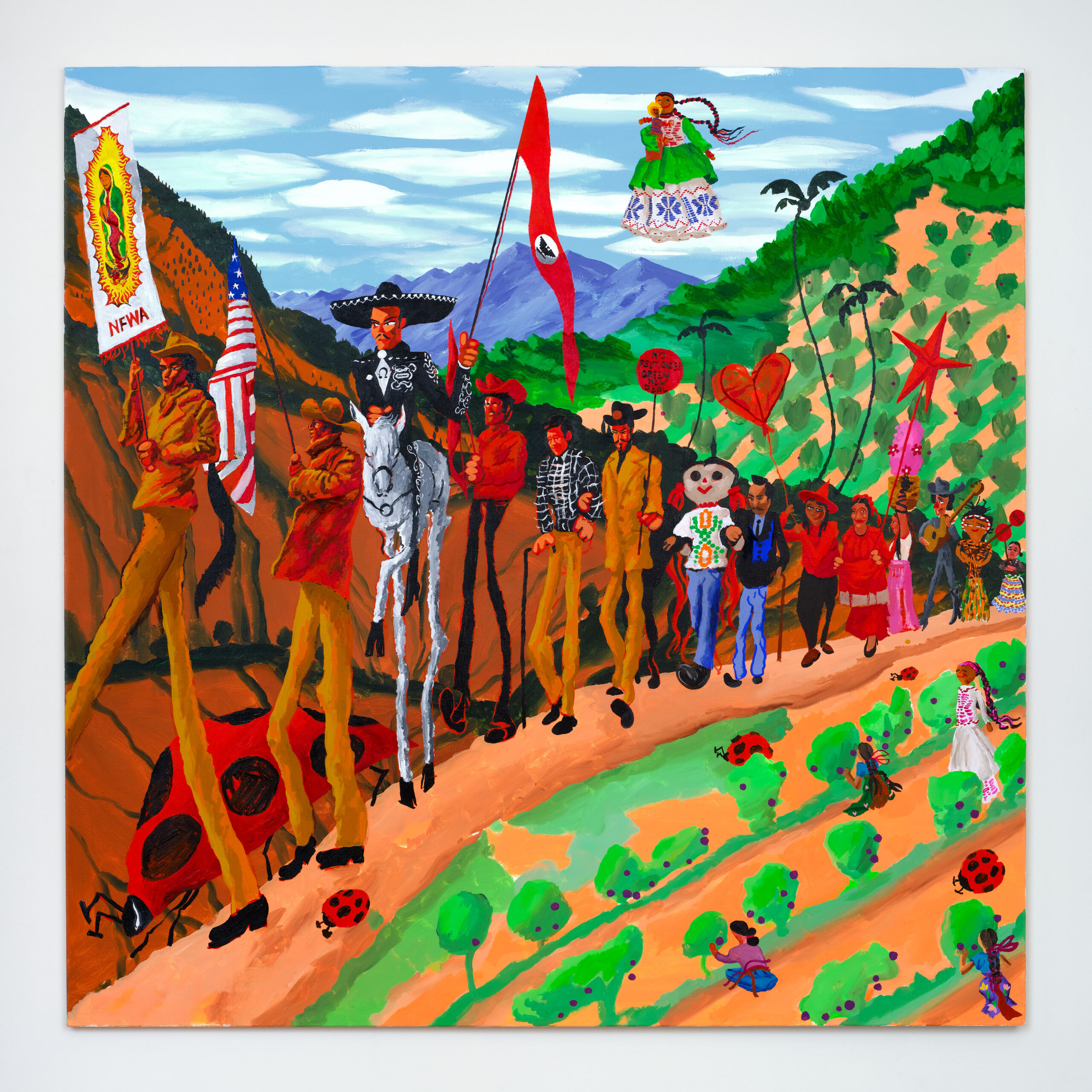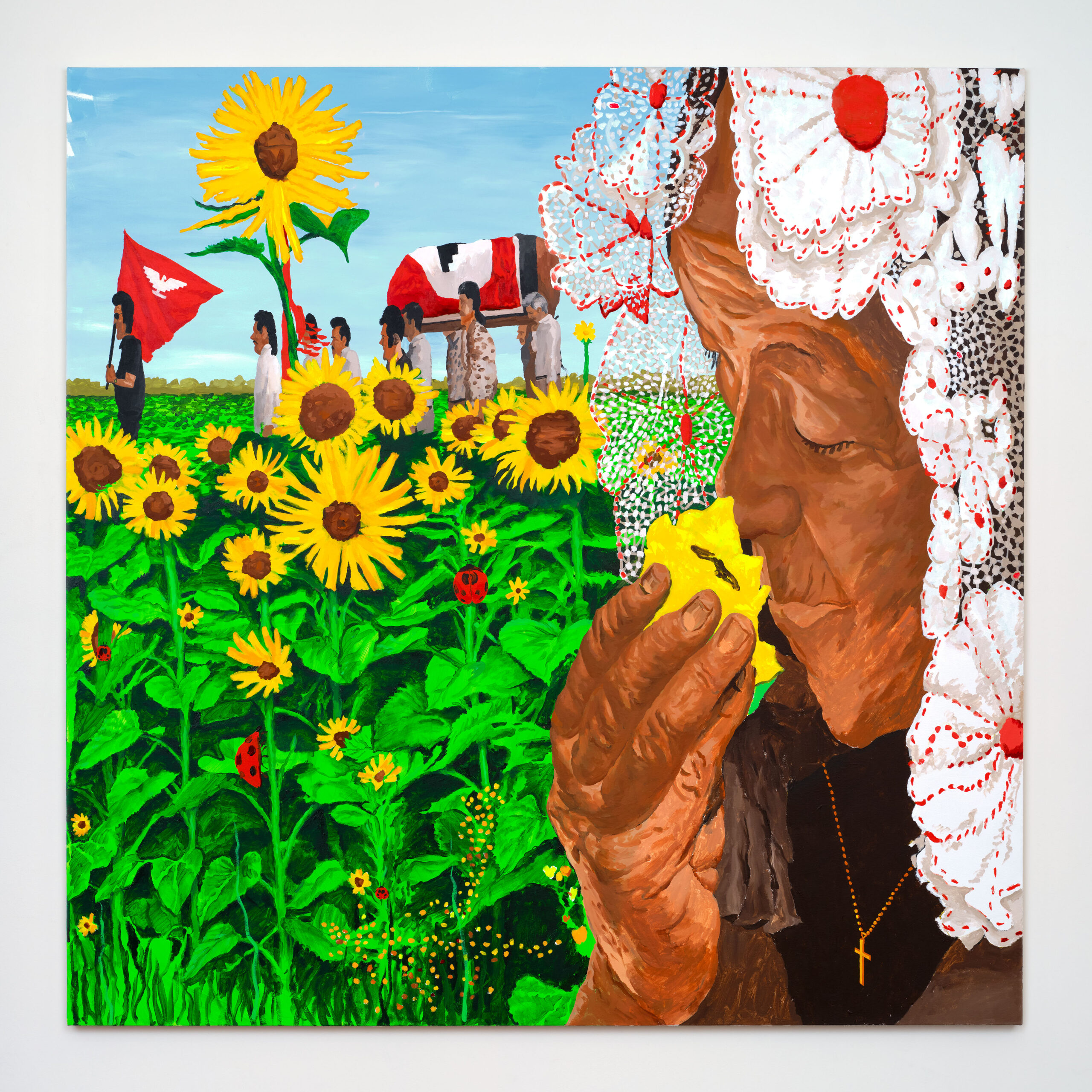
When Esteban Cabeza de Baca was a child, his father often recounted tales of his time as a bodyguard for farm-labor activist Cesar Chavez in the 1960s and ’70s. “My dad had to pat people down before they would go into the hall to hear Chavez talk,” he says. “One guy came in with sticks of dynamite wrapped onto his body, and my dad had to take that apart and get him out of there.” A graduate of Columbia University’s studio art MFA program, Cabeza de Baca has spent the past year painting scenes from his father’s life. Those works are part of an ongoing solo exhibition, Cesar’s Angels, at Parker Gallery in Los Angeles.
Cabeza de Baca’s surrealist-tinged paintings are a sort of “Mobius strip, where you can’t distinguish between foreground and background, and there’s not a linear point of view,” he says. One painting in the exhibition, March to Sacramento, depicts the Delano grape strikers, who, in 1966, trekked 300 miles to Sacramento to demand better working conditions. In the painting, giant ladybugs march alongside farm workers, whose legs elongate into the foreground. Cabeza de Baca’s work, both in this exhibition and more broadly, deals with underlying currents of climate change and how environmental problems can disproportionately affect marginalized communities. The solution is, at least in part, for people to reconnect to the land. “We have to work toward a better way of realizing our interrelationships with the environment,” he says. “And I think those themes were running through the farm workers’ movement, too.”




